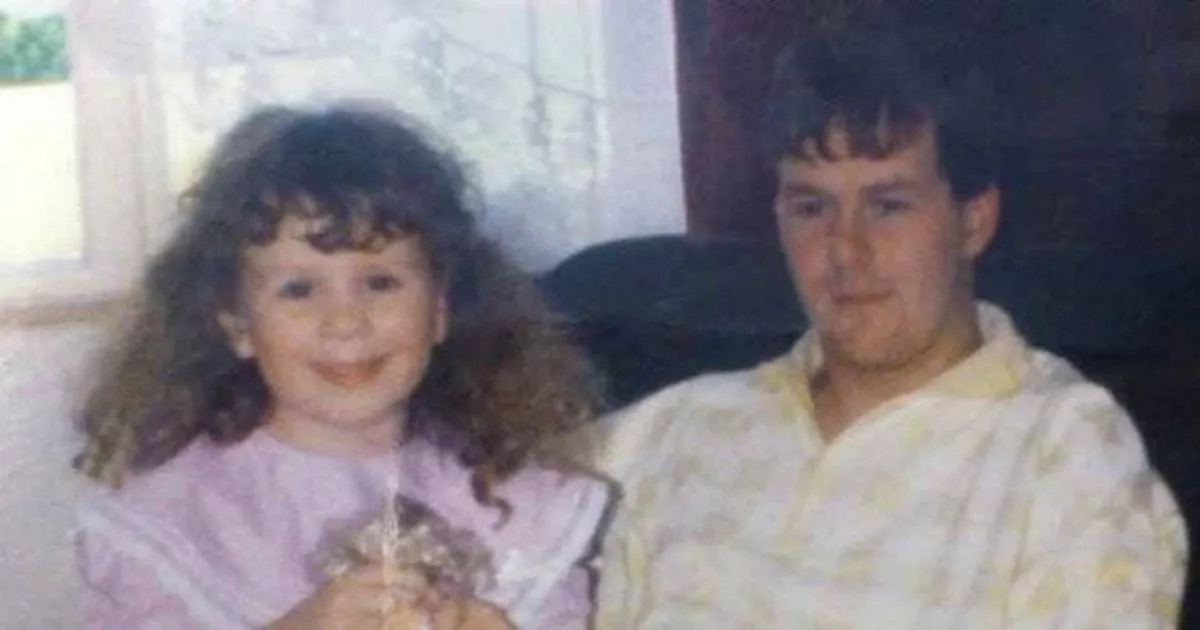Special report: On the 36th anniversary of the Hillsborough disaster, the ECHO speaks to those affected by state-related tragedies about why a new law in the name of those who died in 1989, simply must be delivered in full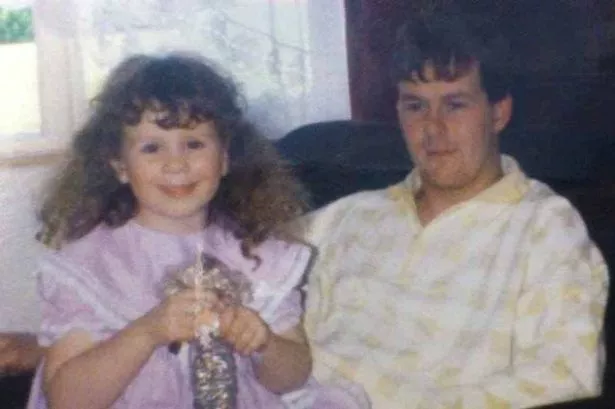 Charlotte Hennessy, pictured with her dad James, who was among the 97 fans who died in the Hillsborough disaster in April 1989
Charlotte Hennessy, pictured with her dad James, who was among the 97 fans who died in the Hillsborough disaster in April 1989
Today, on the 36th anniversary of the Hillsborough Disaster, in which 97 Liverpool fans were unlawfully killed – family members of those who died and others affected by different state scandals have a united message for the government – ‘do not let us down’.
To mark today’s anniversary, the ECHO has spoken to people who have been deeply and traumatically affected by tragic events with a common theme – that those events involved the state and saw the truth covered up. They are all calling for a Hillsborough Law to be delivered in full that will begin to rebalance the scales of justice in this country and reform a system that they say has let them all down for so long.
A Hillsborough Law is a package of new laws that aims to ensure other bereaved families do not go through the same painful experiences as those who lost loved ones at the Hillsborough Stadium disaster, on April 15 1989 and who had to fight for years against the lies and obfuscation of the different organs of the state in their pursuit of justice. The bill is intended to include a statutory duty of candour on public servants, backed by criminal sanctions, to force them to tell the truth during all forms of public inquiry and criminal investigation.
The package also includes a provision for a parity of legal funding for ordinary people forced to take on large institutions following tragic events, so that bereaved families have access to public funding in the way that those who lost loved ones in Sheffield on that fateful day were not.
Sir Keir Starmer has repeatedly promised – including twice in speeches at the Labour Party Conference in Liverpool – that his government, if elected, would bring in a Hillsborough Law in full. The bill was included in his new government’s first King’s Speech in July last year. The Prime Minister said the new legislation would be ready by April 15 this year, to time with the 36th anniversary of the disaster. That now will not happen.
This is because when those who have campaigned so hard for the Hillsborough Law saw the changes that had been made to the bill by government officials last month, they were appalled, with some of the key measures said to have been watered down to a point where the families and the campaigners could not support it. One source told the ECHO that the version of the duty of candour proposed by government would involve a “high bar that would never be reached.” Things got worse when a meeting arranged between the families and the Prime Minister was cancelled at the last minute.
Earlier this month, the Justice Secretary Shabana Mahmood and paymaster general Nick Thomas-Symonds wrote to the Hillsborough families to confirm that the new law would not be brought to Parliament in time for today’s anniversary as had been pledged. The cabinet ministers said that having consulted with groups and representatives over the previous weeks, they believed it would be right to ‘take more time to ensure we have the best, most effective Hillsborough Law.’
The Hillsborough families are adamant that this new law is not just about them and their own battle for truth and justice. They are fighting for this vital change for all of those in the future who need it to be in place when they are unfortunate enough to be caught up in a disaster, tragedy or scandal in which the might of the state is on the other side. On today’s anniversary, we spoke to those from a number of different campaign groups who have been deeply affected by such tragic events to tell the government why when it comes to a Hillsborough Law, nothing but the full package will do.
Charlotte Hennessy – Hillsborough families Charlotte Hennessy, whose dad Jimmy died at the Hillsborough disaster in 1989(Image: Liverpool Echo)
Charlotte Hennessy, whose dad Jimmy died at the Hillsborough disaster in 1989(Image: Liverpool Echo)
Charlotte Hennessy was just six-years-old when her dad Jimmy was killed after going to watch Liverpool play an FA Cup semi-final against Nottingham Forest at Hillsborough Stadium on this day 36 years ago. He was just 29-years-old. Now 42 and a mother-of-four, she always finds the anniversary of the day her life changed forever an incredibly difficult day.
But this year she had hoped it would bring with it a crucial change in the law that she and the other family members had campaigned for over many years. The fact that it won’t is the latest in a long line of desperate disappointments that Charlotte and the other family members have faced.
“It feels like a bit of a kick in the teeth to have anticipated that this would be the anniversary where something good was finally going to come out of such a huge miscarriage of justice,” explains Charlotte.
“It felt like this would be the anniversary where we would have the Hillsborough Law and where we could stand proud and that the end of the road was coming for us. Obviously that is now not the case.”
She says she does not support or understand the need for a postponement in bringing the full Hillsborough Law to Parliament, adding: “The Hillsborough Law was already written and it was written well. It never needed to get to this point.”
However, she adds: “If this is now an opportunity to undo what they have undone with this law, then I will welcome a short postponement. I would expect a week of peace for the anniversary and the following week for things to get back on track and for them to put back together what they took apart. But this cannot go on for weeks and months because we know the drill, we have been here before.”
For Charlotte, there is entirely understandable suspicion about why attempted changes were made to the bill prepared by the Hillsborough Law campaigners – including eminent lawyers Pete Weatherby and Elkan Abrahamson. “In my opinion, the only people who fear a legal duty of candour are those that fear the truth,” she adds.
While inquests concluded that the 97 Liverpool fans, who died as a result of the Hillsborough disaster, were unlawfully killed, no individuals or institutions have been held fully accountable for the disaster and the subsequent campaign of lies that besmirched the victims and their loves ones. It is an enduring testament to those families that knowing their routes to justice have run out, they still want to fight with all they have to ensure there is a law in place to protect others.
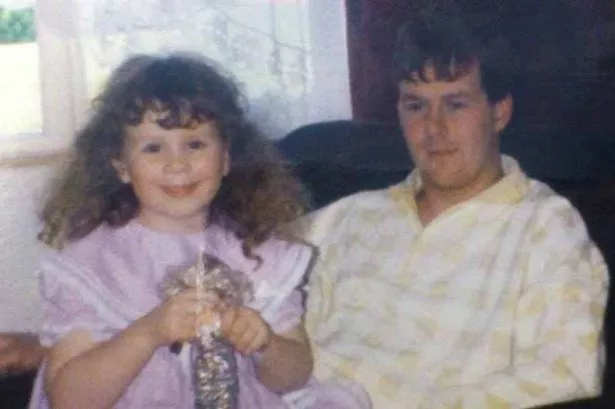 Charlotte Hennessy, pictured with her dad James, who was among the 97 fans who died in the Hillsborough disaster in April 1989
Charlotte Hennessy, pictured with her dad James, who was among the 97 fans who died in the Hillsborough disaster in April 1989
“This has to be for everyone,” says Charlotte. “All of our experiences, the different campaign groups, they are all examples that cover ups take place, regardless of the service or organisation involved. The point is that we need to make that stop. The government is supposed to work for us and we have a right to say where we know it is not working for people. They can’t then turn around and say they are taking it on board but will only apply it to the bits that suit them.”
And if she had a message for the Prime Minister directly today? “I would just tell him that we cannot have any more disappointments. “We are fed up of being let down. We might all come across as strong and tenacious people, but we are real human beings and this all takes its toll.”
Of course today should not be about political wrangling for Charlotte, it should be about remembering her dad. “This is a period of time that contains the worst month of my life and we haven’t been given the grace of this time to quietly reflect because we have had to be campaigning and speaking out about this law. All I want is to be still and to mentally prepare myself for this day.
“If the government had kept its word and delivered the Hillsborough Law by today, then we would have been able to go into this anniversary feeling proud,” she adds. “I would have been saying ‘look at what we have done dad,’ but unfortunately it is another disappointment.
Despite all this, she still believes that the right result can be achieved, adding: “I have got four sons who have watched me go through all of this. I want to show them that what happened to their grandad is a despicable injustice but that we fought against that, we rose above the darkest times and look at what we have achieved. I do believe we will get there.”
Steve Purse – Nuclear test veterans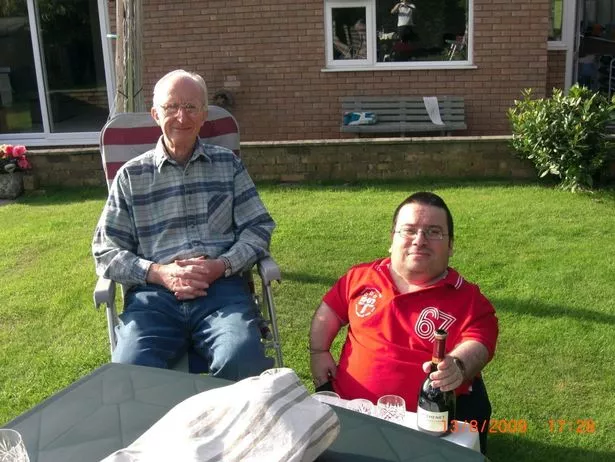 Steve Purse with his father David, who was a nuclear test veteran
Steve Purse with his father David, who was a nuclear test veteran
As Charlotte and the other Hillsborough families have always said, the proposed new law is about more than them – it is about everyone who has faced injustice and tragedy involving the state and who have had to deal with cover ups in their pursuit of truth and justice.
These are themes that Steve Purse knows all too well. His dad David, who was born in Aigburth, Liverpool, joined the Royal Air Force and was later posted to Maralinga in South Australia in 1962. He had no idea what the mission was about or of the huge ramifications that it would have for him and his family for generations to come.
Flight Lieutenant Purse was one of thousands of British service personnel tasked with overseeing the testing of atomic and hydrogen bombs as the British government raced to create a nuclear deterrent during the Cold War. In total, more than 22,000 British service personnel worked on detonations in both Australia and the South Pacific in the 1950s and 60s. Veterans, their families and campaigners believe those who served developed cancers and other illnesses and had children with birth defects because of the radiation they were exposed to.
Steve’s dad David died of Alzheimer’s in 2015 but doctors said that damage done to his skin was equivalent to a lifetime’s worth of sun radiation. Steve himself was born with a number of health conditions, including short stature, type two respiratory failure, low lumbar doses and a myriad of other conditions. He is now desperately worried about the impact on his young son Sascha, who has already needed surgery to remove a number of teeth.
The Ministry of Defence has repeatedly said that its large studies have found no links between the nuclear tests and health issues. But for Steve, there is no doubt that the disabilities he has lived with his whole life were caused by his dad’s exposure to radiation ten years before he was born. He and other campaigners believe that the full medical records of the veterans involved in the tests have been hidden by the government for many years. The MOD insists that no information is being withheld from veterans and that individuals and their families can make requests for the information held on them.
As well as full access to medical records, the campaign for nuclear test veterans is fighting for compensation for those affected and for an official apology from the government. Support group Labrats says the UK is the only nuclear state not to properly recognise its veterans and support them.
Steve – who is part of the wider Hillsborough Law campaign group – believes that the proposed package of new laws would make a vital difference in his group’s pursuit of truth and justice.
 David Purse during his time in Australia
David Purse during his time in Australia
“The commonalities that we all share is that we have been affected or bereaved by actions of the state,” he explains. “Then the state has gone to some lengths to cover up what they have done and failed to take accountability or to support any of the affected families or victims directly.
“We all share that bond, whether its Grenfell, Orgreave, Hillsborough or the Nuclear Test Veterans – we have all suffered at the hands of the state.”
He adds: “Hillsborough Law would help the nuclear test veterans because it would mean that going forward, when we ask for things like our medical records, they will be duty bound to tell the truth or face consequences. Also when we take them to court, we will have a parity of arms when it comes to legal representation, because at the moment most of our cases fail because we have to give up because of the costs.”
Steve says he could ‘think of no bigger betrayal than to promise a Hillsborough Law to the Hillsborough families and then go behind their backs and change it.” He adds: “This is civil servants re-writing what didn’t need to be rewritten. The law that was put forward was well written, it covered everything that needed to be done and it did not need to be amended. It feels like that would only be done to protect those that have something to protect – as in them from wrongdoing.
“It is almost like doing a cover up of the law that is designed to stop cover ups,” he adds. “It is ironic and it is very sad. We have seen this time and time again with our campaign. It feels like the desire to protect their own is greater than the desire to protect and serve those that they swore an oath to protect and serve.”
Steve also has a message for the Prime Minister on today’s anniversary of the Hillsborough disaster. “You made a promise to them, now you have to implement it. We stand 100% with the Hillsborough families, if it is not good enough for them, it is not good enough for us.”
“The whole country should be behind them too,” adds Steve. “Because you may not need a Hillsborough Law right now, but you could do at any point. There but for the grace of god go any of us.”
Peter McGenity – INQUEST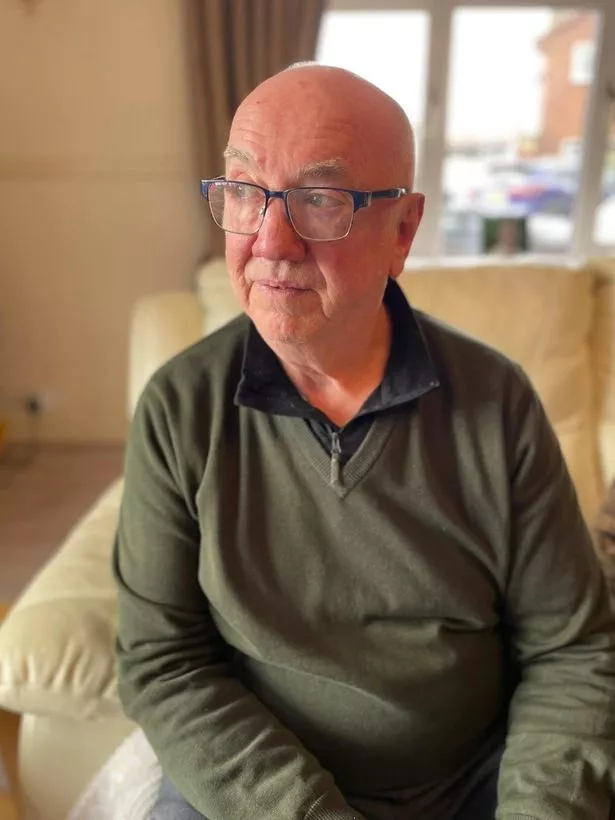 Liam McGenity’s dad Peter.
Liam McGenity’s dad Peter.
Liam McGenity, from Widnes, was just 29-years-old when he died at a mental health unit run by Elysium Healthcare at St Mary’s Hospital in Warrington on March 2, 2021. A jury at Cheshire Coroner’s Court concluded that he may not have died had he not been subject to a gross failure in basic medical attention.
Liam’s devastated family, who had already been forced to endure an agonising three-year-wait for the inquest to conclude, they then had to sit and watch staff from the hospital be, in their view, defensive and evasive about the failures in his care that the jury would later conclude had contributed to his death.
Liam’s dad Peter, who has spoken powerfully about his son’s death, the failures he faced and the difficulties of the coronial process for families, was one of a number of people invited to a Hillsborough Law family listening day organised by the INQUEST charity earlier this year, in which families and victims were invited to discuss their experiences of the inquest and public inquiry process following state-related deaths, harm or injustice.
“When I became more aware of a Hillsborough Law and what it was calling for, I couldn’t believe that we needed a law that would force people at inquiries and inquests to tell the truth,” says Peter. “You wouldn’t think that was necessary for people who are under oath in a country with supposedly one of the best legal systems in the world.”
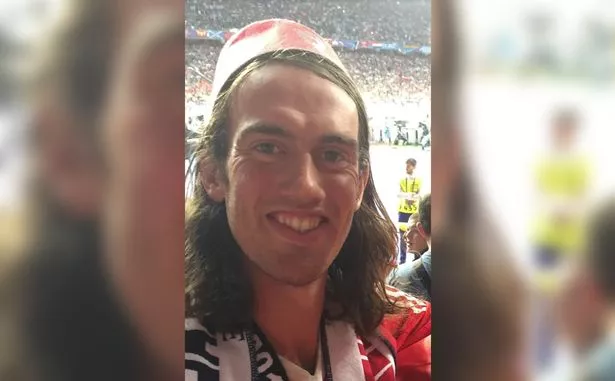 Liam McGenity died while he was a patient in a privately run mental health facility
Liam McGenity died while he was a patient in a privately run mental health facility
Peter and his family say they were helped by legal aid during what they described as a bruising and difficult inquest process, but are aware of others in similar positions who were not – hence the importance of a parity of legal funding within the Hillsborough Law. “We have had several families come forward to us who hadn’t had legal representation at inquests, who were fighting against heavyweight barristers, in one case a King’s Counsel. The process is a real challenge if you do have legal representation, without it, it is a nightmare.”
Like others affected by state-related tragedy, Peter has been left somewhat cynical about the way our society is constructed and who it favours. “You feel like whichever route you take, if it is related to the state, you are not going to get anywhere,” he laments. “The fact that this duty of candour is even needed and that it is taking so long to get into law, you start to wonder what people have to hide don’t you.”
“We all simply want this delivered quickly and in full, is that really too much to ask? The dragging out of this process just to add to the grief and the suffering.”
Sean Brierley – Infected Blood Scandal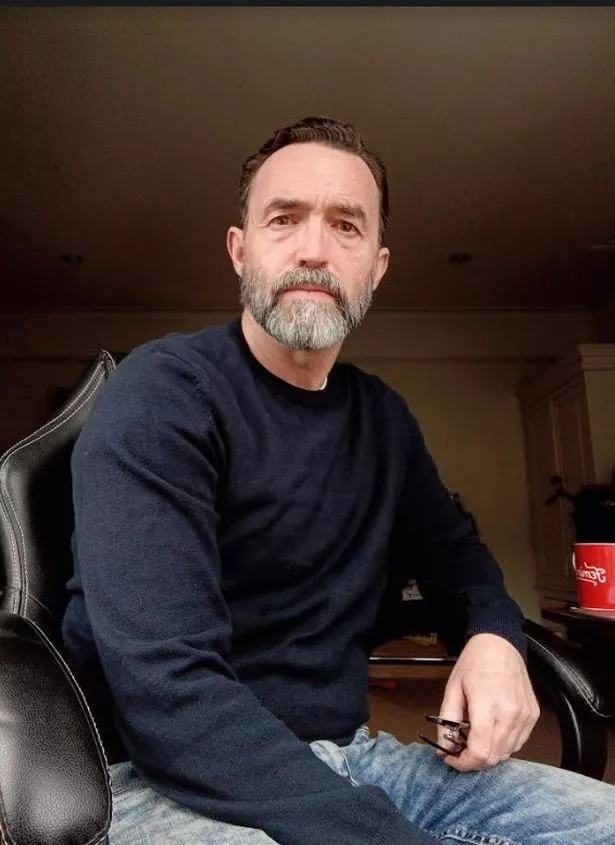 Sean Brierley’s dad Brian was a victim of the infected blood scandal
Sean Brierley’s dad Brian was a victim of the infected blood scandal
The Hillsborough families have faced constant false dawns in their fight for truth and justice and this is a feeling those impacted by the infected blood scandal know all too well – and are continuing to face today.
The scandal – the worst in the history of the National Health Service – saw an estimated 30,000 people infected with HIV or hepatitis through contaminated blood products in the 1970s and 80s – with more than 3,000 recorded deaths.
Like the Hillsborough families, the victims of infected blood and their families faced decades of lies and cover ups as they battled to uncover the truth of what happened before they were finally vindicated through a bombshell report last May.
That inquiry report found that the scandal could largely have been avoided and that there was a ‘pervasive’ attempt by authorities to cover up the truth. The report said that were deliberate attempts to conceal the disaster, including evidence of Whitehall officials destroying documents. The report said that patients were knowingly exposed to unacceptable risks of infection and recommended immediate compensation for those affected.
Despite an Infected Blood Compensation Authority being established with £12 billion allocated, latest figures – released this March – show that only just over £44m has been paid out so far to a total of just 40 people.
For Sean Brierley, whose dad was one of the victims of the scandal, this delay feels like the latest episode of a painful journey that has stretched back for decades.
Sean’s dad Brian was a much-loved community chemist based in the Kensington area of Liverpool before he died suddenly at the age of 49 in 1991. Brian was receiving treatment for haemophilia when he was unknowingly infected with HIV by an NHS doctor who prescribed him contaminated blood products.
It was only after his father’s death that Sean began to understand the enormity of the scandal that he was a victim of and the lengths that elements of the state had gone to in order to try and cover it up.
“One of the things that came out in the infected blood scandal is that there was systematic covering up, lying, deception and the systematic destruction of evidence – in the NHS, in the civil service and in the drug companies – which is very similar to what the Hillsborough families experienced,” says Sean. “The Hillsborough Law would not cover those outside of the public sector like the drug companies, but it would cover the civil service and it would obviously cover the NHS and public bodies.
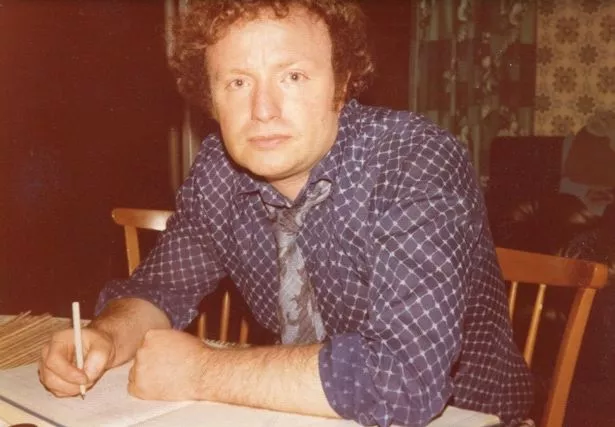 Brian Brierley died after being treated with infected blood products(Image: Liverpool Echo)
Brian Brierley died after being treated with infected blood products(Image: Liverpool Echo)
“They have been trying to avoid any legal redress for a long time and because there is no duty of candour, no legal imperative for people to tell the truth, they are still getting away with it. My dad died in 1991 and yet still today we are facing delays in terms of compensation payouts.”
The delays in any payments are a particular concern because some of those impacted are now in old age, explains Sean. “My mum is in her 80s, there are many other widows who are quite elderly now and some have already died waiting for this compensation. They spent decades fighting for this justice and now may never get to see it.”
Sean said the compensation is not about the money for the families, but about what it means for those involved in state cover ups and scandals. “People think justice is just about getting someone in court and I really feel for the Hillsborough families that they never got that justice in the courts. But the compensation framework is also about justice, because it is about moral hazard,” he explains.
“If it hurts them, they won’t do it again, it is a simple principle. Whether it is a criminal prosecution or a financial sanction, these are ways and means to make sure our loved ones get the justice they deserve and we have to use any means necessary to get that justice. Compensation is one of them.
“It genuinely is not about the money for us, it is about finding a mechanism for justice because we know it will be impossible to get the people who did this to our loved ones into court. So we need to hit them and hurt them hard where we can.”
And Sean’s message for the Prime Minister as he looks again at the Hillsborough Law? “Look I know they have a tough situation in terms of the economy, the state of public services and what is going on in the world, but this goes beyond economics, adds Sean.
“This is about our morality, our shared values and it is about justice. I would ask Keir Starmer what has changed in this country since the 1980s that would stop the infected blood scandal from happening today – I don’t think he could tell us.
“The only way you stop it is by having laws against it and the Hillsborough Law and the duty of candour is the law that would stop it.”
What the government says
Speaking on the day of the anniversary, Prime Minister Sir Keir Starmer told the ECHO that his government ‘must get the legislation right’ as he promised again that the new law – while delayed – will deliver what the people of Liverpool and the Hillsborough families require and deserve.
Sir Keir said: “Thirty-six years ago, we saw one of the greatest disasters in our history. A disaster that led to 97 people tragically losing their lives. Today, I pay tribute to them.
“In the years since, their families and loved ones have campaigned tirelessly to get justice. Despite all the challenges they have faced, they have kept fighting.
“I promised in our manifesto to bring a Hillsborough Law before Parliament, with a legal duty of candour for public authorities and public servants, and criminal sanctions for anyone who fails to comply. I will deliver on that promise.
“After decades of injustice, we must get this legislation right. We must make sure it achieves what the people of Liverpool have spent the past thirty-six years fighting for. Standing firmly at the side of Hillsborough families, this is what my government will deliver.”
